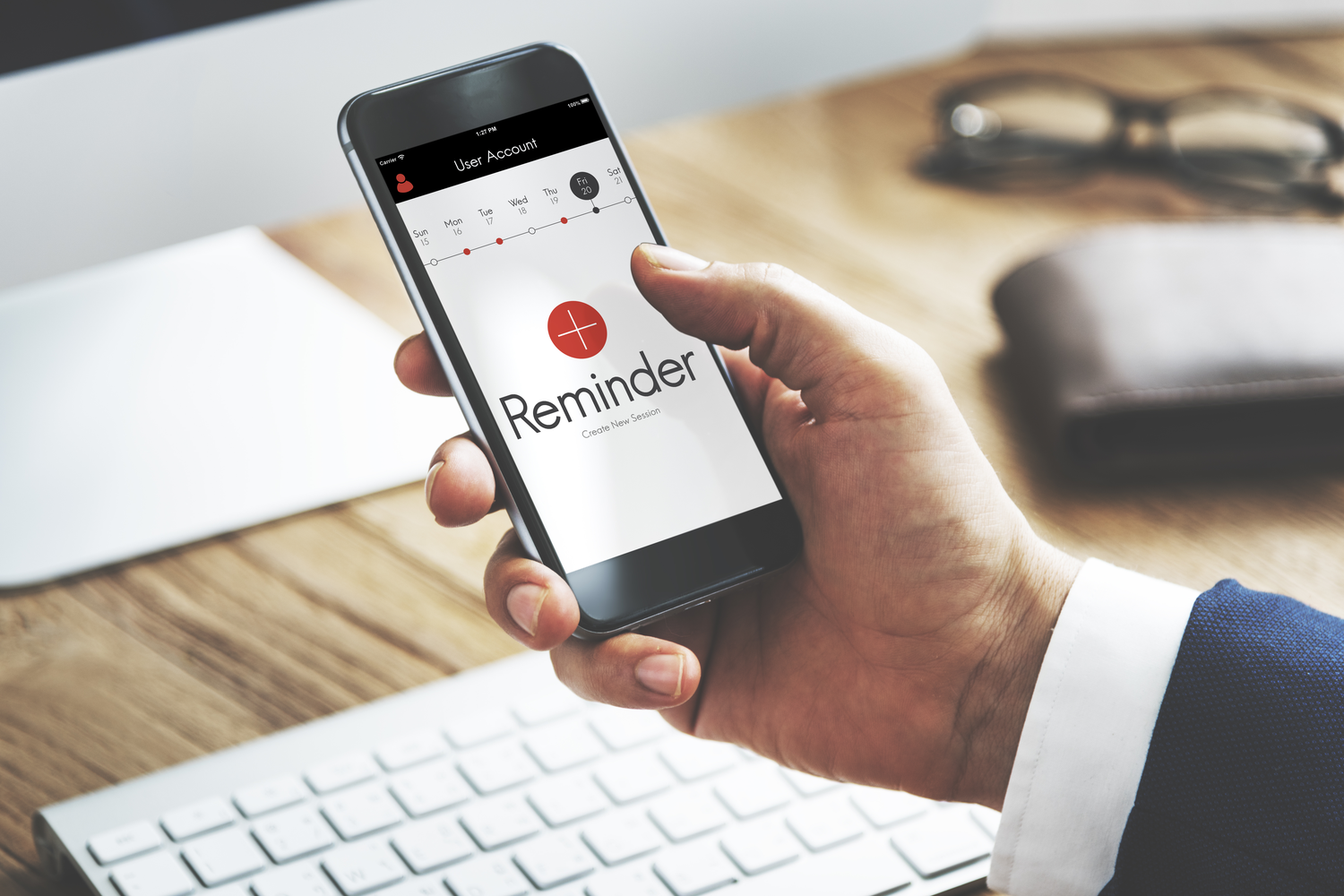They show up on our phones, drop into our inboxes, and ping us through voicemail: appointment reminders. If you’ve visited any appointment-focused provider in recent years, from a doctor to a hairstylist to your tax accountant, you’ve probably gotten one of these handy little nudges.
Chances are, plenty of your clients rely on these reminders to keep their schedules straight. That’s why therapy appointment reminders are so crucial for mental health practitioners, and why the market is flooded with appointment reminder software solutions and appointment reminder apps.
These automated messages don’t just benefit your patients; they help you, too. Here are five ways that therapy appointment reminders benefit your mental health practice.
1. Minimize No-Shows
Despite their best intentions, clients sometimes forget appointments. Modern consumers are busier, more stressed, and more distractible than ever. Therapy appointment reminders received one or two days in advance go a long way toward reducing accidental no-shows.
Advance notice also helps clients who need time to arrange the logistics of attending sessions, and wouldn’t be able to come if they remembered last-minute. For example:
- Someone who cares for a child or elderly relative must arrange care while they’re gone.
- Not everyone has reliable transportation, and some clients rely on rides or public transit to reach you.
- Urgent priorities at work may need to be wrapped up or handed off before an individual can leave to attend an appointment.
The nature of many mental health diagnoses can hinder client efforts to attend therapy consistently. Those struggling with depression may lack motivation; socially anxious clients may back out of commitments last-minute. Advance reminders give them space to mentally prepare and make faithful attendance more likely.
2. Improve Revenue
Therapy appointment reminders are a low-maintenance way to boost your revenue. Obviously, the more appointments you conduct, the more work you bill for, so increasing attendance makes you more money.
Even when a client must cancel, receiving that cancellation ahead of time thanks to an appointment reminder is better for your practice than receiving the cancellation at the last minute. The more lead time you have, the better your chances of finding someone else to fill that empty slot.
Without the appointment reminder sent a day or two ahead, you won’t know the slot is open until the client fails to show. By then, it’s too late to recoup the lost hour.
For a more detailed look at the kind of revenue you can recapture using appointment reminders, check out our Appointment Reminders ROI Calculator.
3. Identify Client Trends
Because automated reminders help avoid forgotten appointments, they give you a better picture of who is dedicated to the therapy process, who cancels frequently, and who fails to show up even after your outreach.
Track these trends to see if cancellations or no-shows tend to follow a specific program, provider, or client demographic. If a program or provider suffers from high cancellation rates, you may need to intervene, find out why clients are discouraged and uninterested, and work to fix the problem. If certain types of clients or certain individuals show spotty attendance, you’ll know who to focus on for more attentive follow-up.
4. Time Savings/Automation
Everyone loves a good “set it and forget it” feature to make the workday smoother. With appointment reminders built into your workflow, you get to set the parameters of all reminders—when to send them, how they’re worded—then sit back and let the software take over for every appointment logged in your calendar. If you’re like most mental health practices, you don’t have near enough free time to send reminders manually.
5. Improve Patient Engagement and Experience
Your clients are used to appointment reminders, and many will expect them. When you deliver on those expectations, you build trust. Clients feel cared for when they know your office is anticipating their arrival and checking up on them. Tech processes like auto reminders that are up-to-date with industry trends contribute to your reputation as a competent, reliable, modern practice.
The more patients appreciate and trust your practice, the easier it is to build rapport and keep them deeply engaged in the therapy process. And since reminders cut down on missed appointments, your clients benefit from regular therapy and move through their mental health journey more quickly. Just the nature of a back-and-forth communication with your office outside of appointments signals to them that they are active participants in this process. Clients who feel like active participants tend to show better outcomes.
Don’t Fall Behind
Remember, you’re competing for your clients’ attention in this information age. If you don’t send appointment reminders, you’re already a step behind other providers who do use them. Can you really afford to be at a disadvantage?
Valant offers easy solutions for automatic therapy appointment reminders. With user-friendly software and a support team standing by to answer questions, you can set messages quickly and move on with your workflow.
Contact Valant today to find out how we can help.




